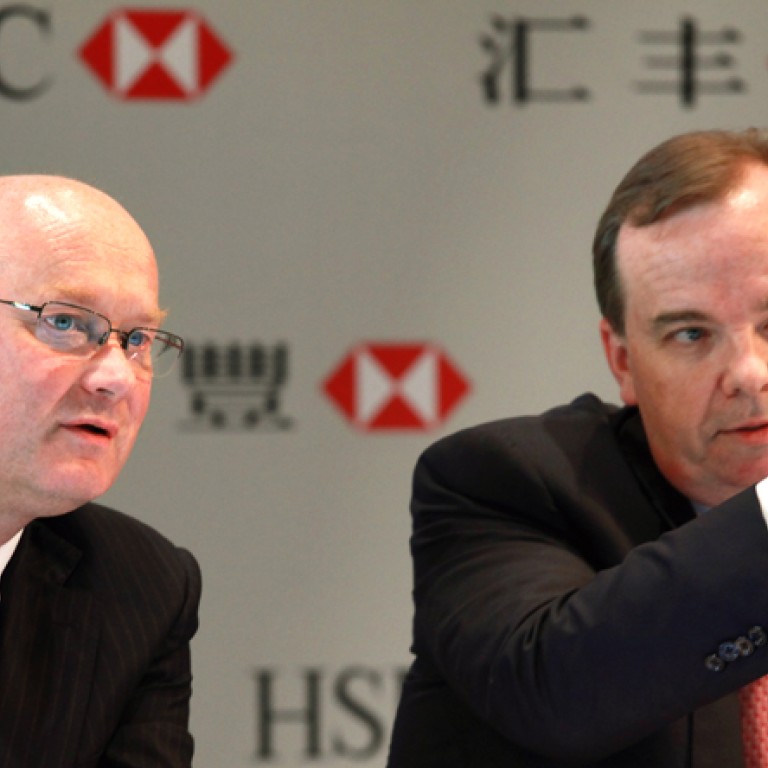
HSBC considers departure from Britain as leaders face resignation calls
Hong Kong Monetary Authority welcomes possibility of bringing Europe's largest bank back to city where it was founded 150 years ago
Several investors were scathing in their criticism of HSBC Holdings' leaders at its annual meeting in London yesterday, calling for the resignation of chairman Douglas Flint and chief executive Stuart Gulliver while also raising questions about its possible relocation from Britain, where the bank paid US$1.1 billion in a levy last year.
They will not get a resignation any time soon, and all board members proposed were elected or re-elected at the meeting.
Salaries for executives were also approved despite some investors flagging the underperformance of the bank's shares since Gulliver took the top job.
A move from London, however, could be in the works.
"It's possible to start exploring," Flint said on the possibility of moving, while declining to give any timeframe for a move from its current tax domicile or commitment on staying in Britain.
The bank, which has been based in London since 1993, traditionally reviewed its tax domicile every three years but had put those reviews on hold.
At an informal meeting with investors in Hong Kong on Monday, the bank had noted that the review had been restarted. It followed up that message with a statement on Friday.
"The question is a complex one and it is too soon to say how long this will take or what the conclusion will be; but the work is under way," it said.
As Europe's largest bank, relocation would deliver a major blow to London's status as a global financial hub.
HSBC has paid increasingly high levies for costs shouldered by taxpayers during the global financial crisis.
It paid out US$1.1 billion for the British bank levy last year, US$200 million more than in 2013. The bank said 58 per cent of its payout was not related to its British banking activities.
The Hong Kong Monetary Authority welcomed the possibility of bringing back the bank, which was founded in the city 150 years ago.
"The HKMA takes a positive attitude should HSBC consider relocating its headquarters back to Hong Kong," it said.
Friday's meeting was not the first in the past few months at which the bank's leadership encountered heavy criticism in public. In February, a British parliamentary committee flayed Gulliver and Flint after details of tax-dodging tactics at HSBC's Swiss unit were revealed to the public.
The bank has since taken a cue from cross-town rival Standard Chartered on bolstering efforts to lop off loss-making businesses.
Gulliver took over the bank in 2011 with an aggressive plan to cut costs and has so far slashed 50,000 jobs globally.
That may not have been enough, however, and the bank is reportedly preparing to divest emerging markets operations in Brazil and Turkey. That plan could be revealed on June 9, according to British media, during a planned meeting with investors.
Speculation over Gulliver's revamped plan has abounded but the smaller adjustments he has made recently have not pleased investors. In the 2011 plan, he aimed for a 12 per cent to 15 per cent annual return on equity.
More than four years later, that goal has been lowered to "more than 10 per cent" a year over the next three to five years, as rapidly rising regulatory and capital costs eat into returns.
